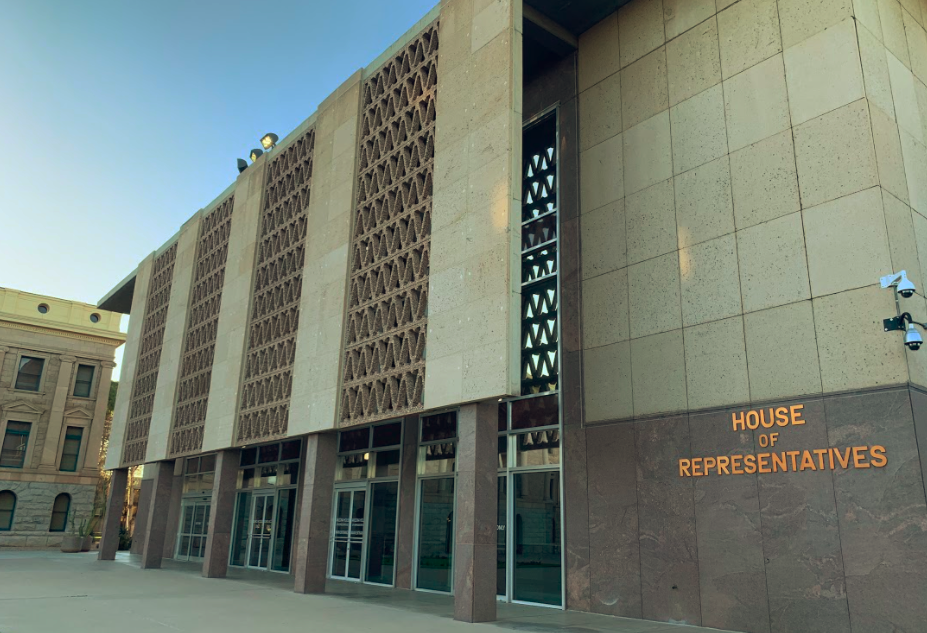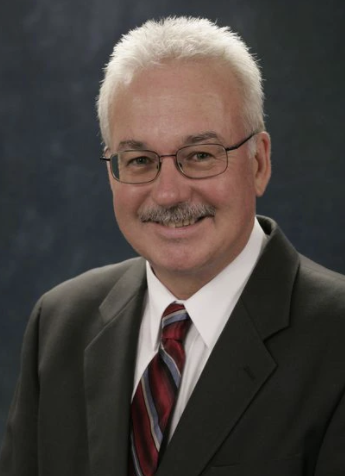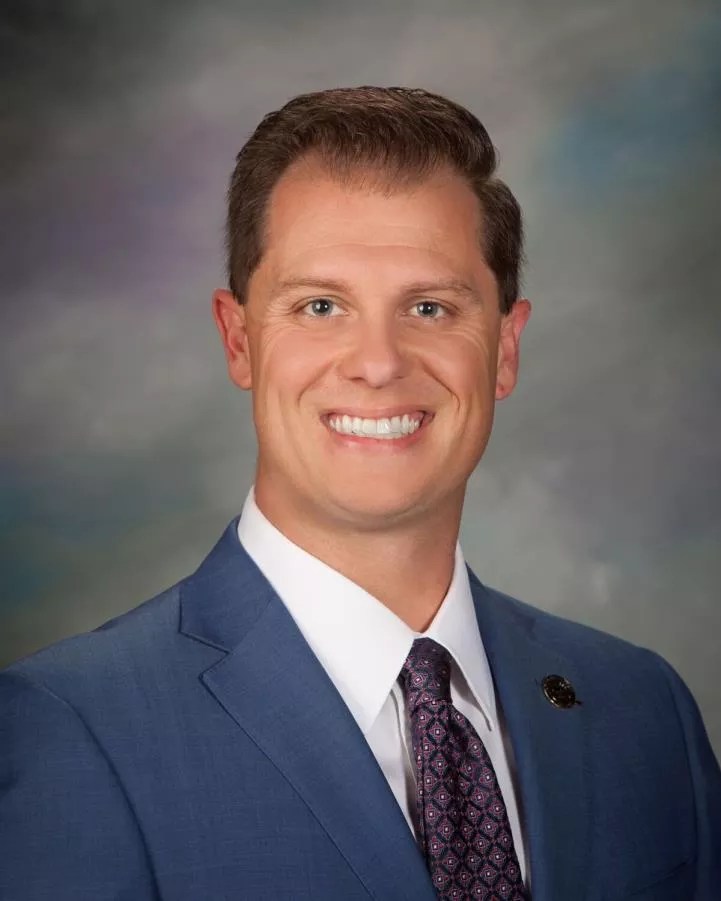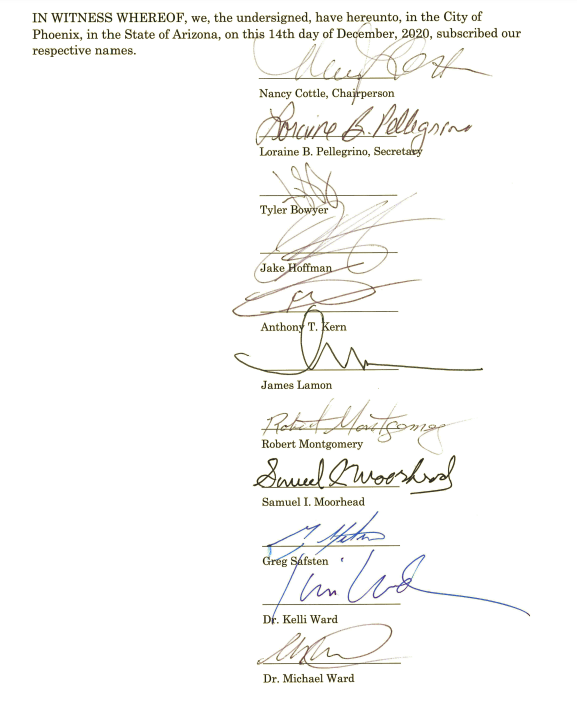
Kristen Mosbrucker

Audio By Carbonatix
A Republican-led bill to cut Maricopa County into quarters has been quietly dropped in the state legislature, but the push to add more Maricopa County supervisors continues.
In a statement released to Phoenix New Times, Representative John Kavanagh said the county-splitting House Bill 2787 “appears to have stalled due to a lack of support,” and that an “alternative solution is coming over from the Senate that may be more viable.”

Legislation proposed by Arizona Republican State Representative Jake Hoffman would have carved up Maricopa County.
Maricopa County
The Fountain Hills Republican said he supports this alternative to increase the number of Maricopa County supervisors from five to nine.

Arizona Representative John Kavanagh represents Scottsdale and Fountain Hills.
Courtesy Photo
The stalled bill was introduced by GOP State Representative Jake Hoffman, whose district includes southern Gilbert and parts of Pinal County. He also was one of 11 Republicans who falsely declared himself an elector for the defeated former president Donald Trump in 2020.
Hoffman’s bill would have created four separate boards of supervisors in a former Maricopa County.
The bill analysis estimated that it would increase costs by at least $155.2 million each year for new county officials and staff.
These new supervisors, according to Democratic Representative Lorenzo Sierra of Tolleson, would have likely skewed Republican.
“When you did an assessment of the political breakdown of the four [proposed] counties, you saw it was gerrymandered significantly,” he said.
At present, four of the county’s five supervisors are Republicans. The Board, through a spokesperson, declined comment.
HB 2787 has been branded by Democrats, some Republicans, and many in the media as a thinly veiled punishment for Maricopa County’s Board of Supervisors, which certified the 2020 Presidential Election in favor of Joe Biden and resisted efforts by state GOP lawmakers to force a now-discredited audit of the results. The stalled bill would dilute the power of current supervisors.
“At the time, I thought it was just a way of being able to have more folks that would overturn or decertify or do something funky with the elections,” Sierra added.

The new counties with boundaries and populations proposed.
Arizona House of Representatives
Kavanagh’s statement indicates future legislation would add four additional supervisors to the current Board. This, many felt, was the true intent of HB 2787 all along.
“Representative Hoffman’s bill just did not make good business sense,” Maricopa County Assessor Eddie Cook said. “It seemed to me their argument was they want more local representation.”
Cook, a Republican, spoke out against HB 2787 in front of the House Committee on Government and Elections.

Jake Hoffman, a former Queen Creek council member, is a Republican State Representative.
Town of Queen Creek
Hoffman refutes any accusation his bill is about anything other than representation. While presenting HB 2787 to the committee on February 16, he said, “This bill is not designed as any type of retribution for the county. It is explicitly not an election issue.”
Instead, he argues, it is all about representation that is closer and more accountable to the people, which would help in tackling tough issues like water in the coming years.
Similarly, Kavanagh’s statement to the New Times reads, “Maricopa County is only one of fifteen counties but it contains 65 percent of the state’s population. This clearly creates a situation where each Maricopa supervisor has far too many constituents to represent.”
Fifth-generation Arizonan Austin Smith spoke in support of the bill at its introduction, citing disenfranchisement of the rural and less populated areas of Maricopa County.
“The inevitable battles for Arizona’s liquid lifeblood cannot be totally and completely controlled by a concentration of power in Phoenix,” Smith said. “We always talk about communities of interest. Well the communities of interest where I am from, in the West Valley, are not the same politically, culturally as Phoenix or the East Valley. It’s different.”
Maricopa County is the fourth-most populous in the United States, trailing Harris County, Texas; Cook County, Illinois; and Los Angeles County, California. Because Maricopa’s districts are drawn to accommodate for population – for example, rural districts are geographically larger than more dense urban areas – it is unclear how additional supervisors might increase or otherwise level out representation at the individual citizen level.

Arizona’s slate of fake electors.
American Oversight
“I don’t find the argument convincing that this gentleman has less representation as anyone else, because these districts are roughly the same size,” said Ken Clark, a former legislator and Phoenix-area Realtor. “I am still not convinced this is not an effort to punish the Maricopa County supervisors, given when this is happening.”
Hoffman introduced the stalled HB 2787 on February 16. The five-page proposal addressed Maricopa County’s massive size and continued growth by slicing it up, dividing assets pro-rata, and creating more than 40 new elected positions.
Representative Hoffman did not respond to several requests for comment.